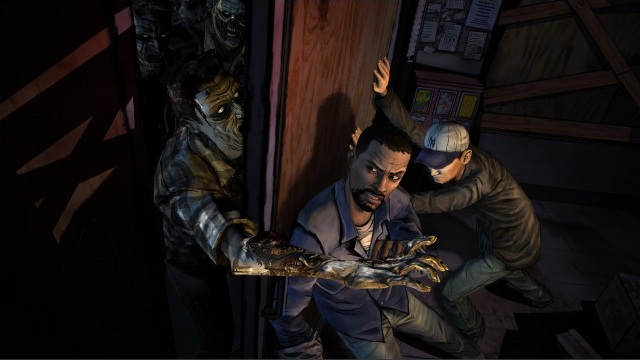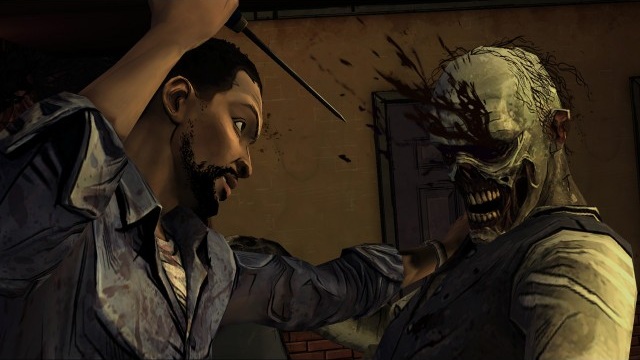The zombie genre may be brought back to life yet.
Zombies, zombies, zombies. Love them or hate them, they have been in freaking everything these days. Take a genre and plug in zombies—boom, instant success. At least, this is what I'm sure a lot of developers and publishers think. What used to be a horrific narrative context that explored themes of society, humanity, and survival (no, seriously, that's what zombies used to be about, I promise) has become so over-saturated that zombies have become more comedy than the horror they once were.
While some zombie-themed series still try to use the undead to explore Romero-esque themes—Dead Rising being an entirely bizarre and oddly intentional example—it hasn't been until The Walking Dead rose to popularity that we've really seen something other than the occasional standalone story do anything of note with the idea from a storytelling perspective. The Walking Dead, however, is both a lengthy, still-running comic series and a recent hit TV show.
Telltale Games, a small team known these days for applying an affordable episodic DLC game format to various franchises (Jurassic Park, Back to the Future, and Homestar Runner), has recently picked up the torch lit by The Walking Dead graphic novel series in the hopes of creating an interactive experience within the same disparaging world that Sheriff Rick Grimes struggles through. Strictly based on the ever-expanding comics, The Walking Dead video game serves as a prequel focusing mainly on new characters to the universe during the time in which Rick was in a coma—but expect to see a few familiar faces along the way.
Protagonist Lee Everett finds himself free from a crime, unknown to players at the start, and is thrust into the role of a father figure for young Clementine. She's an impressionable, innocent girl who spurs his sympathy and protective nature, without being irritating and ignorant like other fictional children can be. It's extraordinarily refreshing to see the game's core theme of parenthood being taken so seriously, as is seeing a non-Caucasian protagonist in such a melancholic tale who does not evoke racial stereotypes.
The thankfully colorful sketchbook-styled visuals capture the aesthetic of the comics while also looking distinctly like a 'Telltale' game in art style. There are some spotty patches of visuals with blurry textures, some stiff or awkward animations, which will be noticed by the keen eye on an HD display. Taking into account that the entire experience is compacted into a bite-sized downloadable format, though, it's much easier to forgive these occasional and minor hiccups—it's much cleaner and smoother than Jurassic Park was, rest assured. Given the overall tone of the visuals, writing, sound, voice acting, and especially the simple yet effective facial animations, The Walking Dead looks to be Telltale's most polished work so far and is effective at sucking players into its world and making them care about the characters—especially with the knowledge that some of them will die, as is in-line with the franchise's other mediums.

The flow of gameplay includes the occasional zombie thumping and some very Telltale-like adventure-styled puzzles. The slowly shambling zombies create an atmosphere that is both tense without asking for too much suspension of disbelief if a puzzle takes a little while to figure out. Thankfully, the title focuses largely on dialogue choices and character interaction above all else. I played through Episode 1 twice for this review, making very different decisions my second time. While some key events still had the same end result, one scene was entirely different, and the details of character interaction were reflected through different dialogue and an overall tone expressing that some of my choices will alter events later on.
Since some decisions (naturally) involve deciding who to save when things get rough, it reinforces the exact kinds of themes that make its source material engaging. My preview for Episode 2 was even altered in certain ways from when I saw it the first time, forshadowing the aftereffects of my decisions. Clementine's role as the ever-observant child looks to provide a potentially powerful narrative payout on this theme of choice.

If you've been following Telltale's work, then what I've described will sound as if they've picked and chosen different pieces of their previous game mechanics and blended them together. In this case, it seems to be a good thing so far. QTEs, puzzles, dialogue trees, and character development come together to create a well-rounded experience that any fan of The Walking Dead should get something out of, and even less-experienced game players will be able to work through without too much trouble. Due to the prequel nature of the tale, the game is just as good a starting point as any for anyone curious about the series.
For a $5 two-hour ride, The Walking Dead's premiere outing still manages to accomplish what it's setting out to do within such a narrow scope. No element outstays its welcome (except for that freaking 'Duck' kid, I swear, I don't think I'll feel bad if he gets eaten) and it is already reflective of the experiences that its development team have been practicing this generation. There's no telling yet if the entire 'tailored experience' will live up to what its groping green hands grasp for. That said, on its own merits, The Walking Dead Episode 1 is a unique title worth giving a try, regardless of its IP—but especially for those who appreciate what the established franchise strives for in storytelling.
-
Overall audio/visual design captures tone of the IP
-
Focus on choice and narrative
-
Blend of gameplay elements is sensible and effective
-
Presentation has a few technical hiccups
-
Sometimes feels less interactive that it could be











